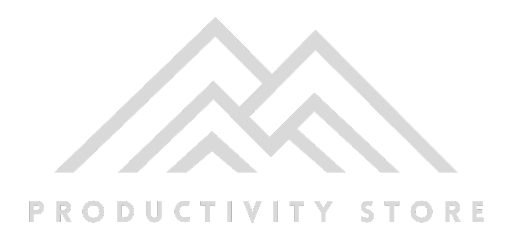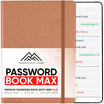Meal planning isn't just about organizing your weekly dinners; it's a powerful tool for saving money and reducing food waste while also contributing to a more sustainable lifestyle. In this article, we'll explore how you can use a meal planner to not only streamline your grocery shopping and cooking routines but also make a positive impact on your budget and the environment.
The Importance of Meal Planning
Meal planning involves taking the time to plan out your meals for the week ahead, including breakfasts, lunches, dinners, and snacks. By creating a meal plan, you can:
- Save Time: Meal planning eliminates the need for last-minute trips to the grocery store or indecisive moments in front of the fridge. With a plan in place, you can streamline your shopping and cooking routines, freeing up valuable time during the week.
- Save Money: When you plan your meals in advance, you're less likely to make impulse purchases or dine out unnecessarily. By sticking to a shopping list and buying only what you need, you can reduce food waste and lower your grocery bill.
- Reduce Food Waste: Meal planning helps you use up ingredients efficiently and minimize food waste. By planning meals around ingredients you already have on hand and incorporating leftovers into future meals, you can reduce the amount of food that ends up in the trash.
- Eat Healthier: With a meal plan in place, you can ensure that your meals are balanced, nutritious, and aligned with your dietary goals. By incorporating a variety of fruits, vegetables, whole grains, and lean proteins into your meals, you can support your health and well-being.
How to Save Money and the Planet with Your Meal Planner
- Plan Your Meals: Start by creating a weekly meal plan that includes breakfast, lunch, dinner, and snacks for each day. Consider using seasonal ingredients and incorporating plant-based meals to reduce your environmental impact and save money on groceries.
- Shop Smart: Once you've created your meal plan, make a shopping list of the ingredients you'll need for each meal. Stick to your list when you're at the grocery store to avoid impulse purchases and unnecessary spending.
- Minimize Food Waste: Be mindful of portion sizes when planning your meals to avoid cooking more food than you need. Use leftovers creatively by incorporating them into future meals or repurposing them into new dishes.
- Embrace Batch Cooking: Save time and money by batch cooking staple ingredients such as grains, beans, and proteins and incorporating them into multiple meals throughout the week. Batch cooking can also help you reduce energy usage and minimize food waste.
- Get Creative: Don't be afraid to get creative with your meal planning and cooking. Experiment with new recipes, substitute ingredients based on what's available, and repurpose leftovers into new dishes to keep things exciting and minimize waste.
Meal planning is a simple yet effective way to save money, reduce food waste, and support a more sustainable lifestyle. By taking the time to plan your meals in advance, you can streamline your grocery shopping and cooking routines while also making a positive impact on your budget and the environment. So grab your meal planner and start planning your way to a healthier, more sustainable future today.




















Leave a comment
All comments are moderated before being published.
This site is protected by hCaptcha and the hCaptcha Privacy Policy and Terms of Service apply.